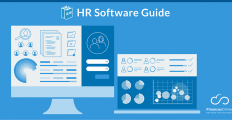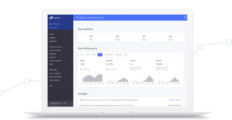Freelancing can be incredibly freeing you get to choose your clients, work your own hours, and follow your passion. But with that independence comes a unique set of responsibilities, especially when it comes to managing your finances. From tracking payments and sending invoices to calculating taxes and keeping accurate records, the administrative side of freelancing can be overwhelming.
That’s where Software as a Service (SaaS) tools come in. These cloud-based platforms are revolutionizing how freelancers handle their finances, making it easier than ever to stay organized, get paid on time, and file taxes correctly. In this article, we’ll dive into how SaaS can simplify tax and invoicing tasks for freelancers and help you stay focused on what you do best.
Many freelancers rely on SaaS tools to handle tasks like invoicing, tax management, and even team collaboration. For those who prefer outsourcing development tasks or need additional technical expertise, offshore software development services can offer valuable support, enabling freelancers to scale their business without overwhelming their own resources.

Why freelancers struggle with finances
Unlike traditional employees, freelancers must manage every aspect of their business. That includes not only finding clients and completing projects but also handling administrative tasks like bookkeeping, invoicing, and tax filing. Here are just a few common pain points:
- Late payments from clients
- Forgetting to send invoices on time
- Lack of clear financial records
- Difficulty calculating tax deductions
- Fear of making mistakes during tax season
Many freelancers spend hours each week managing these tasks manually. Fortunately, SaaS platforms are making it easier than ever to automate and streamline financial operations.
What is SaaS (and why does it matter for freelancers)?
SaaS stands for Software as a Service a delivery model where applications are hosted on the cloud and accessed through the internet. Instead of downloading and installing software, users pay a monthly or annual fee to access it online.
For freelancers, SaaS platforms offer scalability, affordability, and real-time access to essential financial tools. Whether you’re on your laptop or smartphone, you can manage your invoicing and tax documents from anywhere.
Some key features of SaaS that benefit freelancers include:
- Cloud storage for receipts and invoices
- Automated invoicing and payment reminders
- Tax calculation and deduction tracking
- Integration with banks and accounting tools
Benefits of using SaaS for invoicing
Automate invoice creation and delivery
Creating invoices manually takes time and it’s easy to forget to send them after finishing a project. SaaS invoicing platforms like FreshBooks and Wave allow you to set up templates, automate recurring invoices, and send them to clients with just a few clicks.
You can also track which invoices are pending, paid, or overdue, helping you follow up with clients faster and more professionally.
Accept multiple payment methods
Many SaaS tools integrate with Stripe, PayPal, and even direct bank transfers. By offering clients more ways to pay, you reduce friction and get paid faster. Some platforms even allow you to charge late fees automatically, encouraging timely payments.
Branded, professional invoices
First impressions matter. With SaaS platforms, freelancers can create branded invoices that reflect their business, helping them appear more polished and trustworthy to new clients.
Liv.rent as an example of SaaS supporting freelancers
While liv.rent is primarily known as a rental platform, it also demonstrates the power of SaaS in simplifying financial workflows. Independent landlords, many of whom operate as sole proprietors or side hustlers, use liv.rent’s integrated platform to issue rent receipts, collect payments, and track expenses much like freelancers do in their own businesses.
As FinancesOnline has observed, platforms like liv.rent show how SaaS can serve niche audiences with tailored features proving that flexible, cloud-based tools aren’t just for accountants or large businesses. They’re empowering individuals to run their businesses with confidence.
How SaaS simplifies tax management
Real-time expense tracking
SaaS platforms like QuickBooks and Bonsai let you categorize expenses as you go. Instead of scrambling at tax time to find receipts or comb through bank statements, your deductions are neatly logged and ready for reporting.
Calculate taxes automatically
One of the most stressful parts of freelancing is estimating quarterly taxes. Some SaaS solutions calculate your estimated tax payments for you and even send reminders so you never miss a deadline. That means no more surprise tax bills or last-minute panic.
Store receipts and important tax docs
Cloud-based tools also act as digital filing cabinets. You can upload photos of receipts or drag-and-drop PDFs, keeping everything in one place. Come tax season, you’re not searching your inbox or digging through drawers.
Seamless integration with accountants or tax software
Some SaaS apps offer accountant access or integrate directly with tax filing software. That means your accountant can log in and see your real-time data, making filing faster and more accurate.
FinancesOnline offers accounting software comparison that lists several tools that cater specifically to freelancers and small businesses, allowing users to compare functionality and pricing before committing.
Choosing the right SaaS tools for your needs
There are dozens of SaaS platforms available, and the right one for you depends on your needs, budget, and workflow. Here are a few things to consider:
- Do you need both invoicing and tax support? Some platforms specialize in one or the other.
- What’s your budget? Free tools like Wave are a great starting point, while paid services offer more advanced features.
- Do you work with international clients? Look for tools with multi-currency and international tax support.
- Do you already use a bank or CRM tool? Make sure the SaaS integrates with your existing software stack.
You can explore top-rated tools on FinancesOnline with sales software rankings, where you’ll find user reviews and side-by-side feature comparisons to help guide your choice.
Avoiding burnout with better financial visibility
One of the most underrated advantages of using SaaS tools for tax and invoicing is the mental clarity they provide. When freelancers don’t have to worry about tracking down payments, organizing receipts, or calculating tax estimates manually, they free up valuable mental bandwidth. This improved financial visibility reduces decision fatigue and allows freelancers to spend more time creating rather than stressing about spreadsheets. With features like real-time dashboards and income reports, SaaS platforms give you a clear view of your cash flow, helping you make smarter, faster business decisions.
Collaboration with clients and teams made easier
Many freelancers work as part of distributed teams or collaborate with subcontractors. SaaS tools make it easier to loop in stakeholders by offering shared dashboards, role-based access, and centralized communication. This is particularly helpful when collaborating on long-term projects where multiple invoices, milestones, or expense reports are involved. Tools like Harvest and Zoho Invoice, provide integrated project tracking and time logging, so everyone stays on the same page and gets paid correctly.
Using SaaS data insights to inform financial planning
Beyond invoicing and taxes, many SaaS tools provide valuable data insights that help freelancers forecast income, plan expenses, and set business goals. By analyzing trends like client payment timelines or monthly earnings fluctuations, freelancers can better prepare for seasonal slowdowns or unexpected costs. For example, freelancers working in the rental or real estate space often reference tools like the liv.rent Monthly Rent Report to track market trends, set rental pricing, or estimate their cost of living in different cities. Pairing this type of industry data with your own SaaS financial reports creates a clearer picture of your financial landscape and helps you make more informed, strategic decisions.
Final thoughts: more time, less stress
Freelancing is all about freedom — but that freedom can quickly turn into chaos without the right tools. By adopting SaaS solutions for taxes and invoicing, freelancers can reclaim hours of admin time, reduce errors, and improve their cash flow.
Whether you’re just starting out or running a full-fledged freelance business, there’s a SaaS tool out there to make your life easier.























Leave a comment!